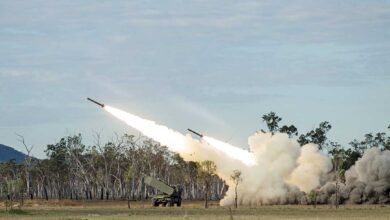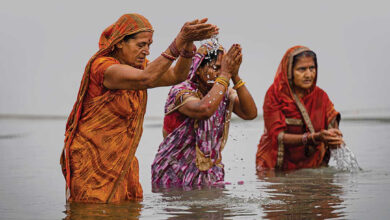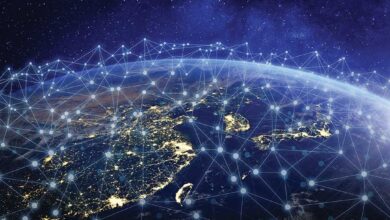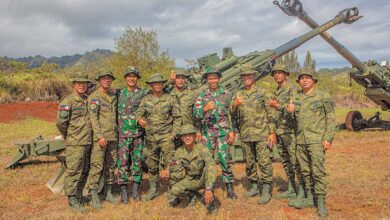Improving human rights

Regional multilateral trade agreements can improve quality of life, create opportunities
Siddarth Srivastava and Jacob Doyle
Exasperated South Korean farmers traveled to Nairobi, Kenya, in December 2015 to protest a major pitfall of free trade: Low-cost imports, they said, were putting them out of business.
They descended on the World Trade Organization’s (WTO) talks in Nairobi, and as rain poured outside the Kenyan National Archives, the group of 15 farmers sang protest songs and held banners reading, “No WTO, yes to food sovereignty!”
“We came here representing the Korean Women Peasants Association to oppose the WTO,” said Hae Yeon Chung, the group’s spokeswoman. “The WTO has forced us to open our markets to cheap, foreign agricultural products. Once they come into the market, the prices plummet. So, Korean farmers cannot compete with those prices. They go into debt and leave agriculture.”
The WTO, an intergovernmental body that regulates international trade among its 164 member states, is beginning to take notice of such pleas. It lists 10 benefits to joining its ranks, and they closely mirror widely recognized human rights ranging from the promotion of peace to an affordable cost of living.
Michael Moore, former WTO director-general and former New Zealand prime minister, told FORUM that he concurs with the concept of trade agreements promoting human rights, with some qualifications.
“I think trade between nations does promote human rights because trade makes countries wealthier,” Moore said. “It puts a high premium on education and acquisition of skills, and therefore the countries get better when they get more skilled. But human rights is not the basis of trade.”
Prevailing pacts
Regional multilateral free trade agreements have been in place in the Indo-Asia-Pacific since the mid-1970s. Among the most significant are the Asia-Pacific Trade Agreement (APTA), the Association of Southeast Asian Nations (ASEAN) Free Trade Area (AFTA) and the South Asian Free Trade Area (SAFTA).
APTA, the oldest, was signed in 1975, with its key objective to enhance economic development among its participating states, which include Bangladesh, China, India, Laos, Mongolia, South Korea and Sri Lanka. It seeks to achieve its objective through the coverage of goods and services, a synchronized investment regime and free flow of technology transfer by “the adoption of mutually beneficial trade liberalization measures,” according to the U.N. Economic and Social Commission for Asia and the Pacific.
AFTA was signed in 1992 as an agreement among the members of the ASEAN trade bloc to eliminate import tariffs and other trade barriers among members and to attract foreign direct investment. The 10 current signatories include Brunei, Burma, Cambodia, Indonesia, Laos, Malaysia, Philippines, Singapore, Thailand and Vietnam.
SAFTA is an agreement signed in 2004 to create a free trade area that counts Afghanistan, Bangladesh, Bhutan, India, Maldives, Nepal, Pakistan and Sri Lanka as its member states. A noted achievement has been the 2011 framework agreement to reduce customs duties of all goods traded between members to zero by 2016.
All Indo-Asia-Pacific countries are also members of the WTO, with the exception of Bhutan.
Moore affirmed the role of trade agreements in the Indo-Asia-Pacific region in helping to enable such widely accepted human rights as the right to work, but he stopped short of calling them guarantors of human rights. “They stand for, collectively, reaching a place that’s better than where we are now,” he said, adding that such agreements do not, however, “force countries to have elections.”
If free trade agreements can’t directly enable rights such as free elections, perhaps suspending them in the form of sanctions can. Moore recalled his own experience working to dismantle South Africa’s system of apartheid. “South Africa was boycotted, and most countries were involved in it,” he said.
Free trade, he said, enabled the possibility of sanctions.

Moore’s views correspond to a degree with the findings of “Pacific Trade and Human Rights,” a 2014 United Nations report.
“In broad terms, economic growth through free trade can increase the resources available that may support the realization of human rights, including for example the right to health and the right to food,” the report said. “At the same time, there are concerns that free trade does not always lead to economic growth, and that economic growth does not automatically lead to greater promotion and protection of human rights.”
The report looks at how reducing import tariffs — a cornerstone of the three agreements mentioned above, as well as the WTO — has in many cases lowered overall tax revenue for Pacific island countries that depended on taxing imports to pay for such services as roads, schools, health care and defense. While lowered import tariffs have often meant a wider range of product choices for consumers, the report added, it has come at the price of having to overhaul tax systems, typically replacing import tariffs with a value-added tax at the point of sale, a process that may require a decade or more before revenue is restored to the level before the tariffs were cut.
As for inequities in the agricultural sector, protester Chung said her constituents have suffered severely under WTO agreements, even though she acknowledged that such large Korean corporations as Samsung may benefit from them.
A contrast is offered by India, the world’s second-largest country and now the world’s fastest-growing economy, as reported by the International Monetary Fund. India’s economic growth trend has paralleled its membership in the WTO and its participation in APTA and SAFTA and a number of other, less comprehensive agreements. Moreover, agricultural products have been among its top exports by volume, according to Maersk Line, the leading international shipping company. India’s Human Development Index, a composite statistic of life expectancy, education and per capita income, is at an all-time high, up more than 60 percent since 1980.
Uneven benefits from global trade, as demonstrated by the plight of South Korea’s farmers, is not lost on the WTO, however.
“The trouble we have in trade is that agriculture and these sort of products are not covered well enough,” Moore said. “And there’s still work to be done.”
This work, according to the U.N. report, includes formulating future trade agreements with greater attention to human rights “to improve the outcomes of trade liberalization.”
Realizing gains
What the report characterized as “the human rights-based approach to trade and investment” involves seven principles, including holding state actors accountable for delivering trade agreements that respect the principle of nondiscrimination, promoting participation of all — including marginalized groups — and encouraging international cooperation and assistance to ensure that poorer countries also benefit from trade.
To achieve this new approach, the report recommended that governments recognize their obligations “to ensure that commitments made in trade agreements help to realize and do not undermine human rights.”
“This points to an immediate need to strengthen the capacity for trade officials and negotiators to understand human rights,” the report continued, “and to integrate rights-based assessments and measures into agreements. Conversely, it is important for human rights officials and national human rights institutions to improve their capacity to engage on trade issues.”
This capacity-building needs to happen in lesser-developed countries (LDCs), which have seen their interests overlooked at global trade talks, said Selim Raihan, one of the U.N. report’s authors and a professor of economics at the University of Dhaka in Bangladesh.
“There is a kind of passive player approach LDCs too often take to the trade negotiations,” Raihan said. “So, they’re not really active, and what agreements happen at the global level somehow they have to accept without having much influence. As I see it, they have to mobilize a kind of collective voice. That way, there is a kind of LDC forum within the WTO.”
Raihan added that such a forum could bolster the clout of the existing LDC group of 36 nations within the WTO. Chief among the issues important to the LDCs, Raihan said, is a long-standing demand for more open access to the food markets of the more economically developed countries, which would require them to reform their import tariffs and agricultural subsidies. A better understanding of international trade and trade law on the part of LDC negotiators, in addition to speaking with a common voice, could help achieve this.
“One of the basic fundamentals of human rights is a kind of economic emancipation of those people who are involved in this development process,” Raihan said. “They need to be effectively represented. I think that at many of the trade negotiations, unfortunately, this was not the case. Human rights may be defined and perceived differently in different contexts, but they are sufficiently important that they have to be taken seriously by the WTO, and probably they need to come up with some kind of definition of human rights, which is consistent with trade and economic agreements.”
Is raising the standards of trade agreements to give more effective consideration to human rights too much to ask? Will countries make this a priority?
“They should, yes,” Moore said. “As countries get wealthier, they expect more. You’ve seen that happen in my region here, with South Korea, Taiwan, Japan, etc. We’re all impatient. We hate sitting here, watching it happen, but it happens.”




